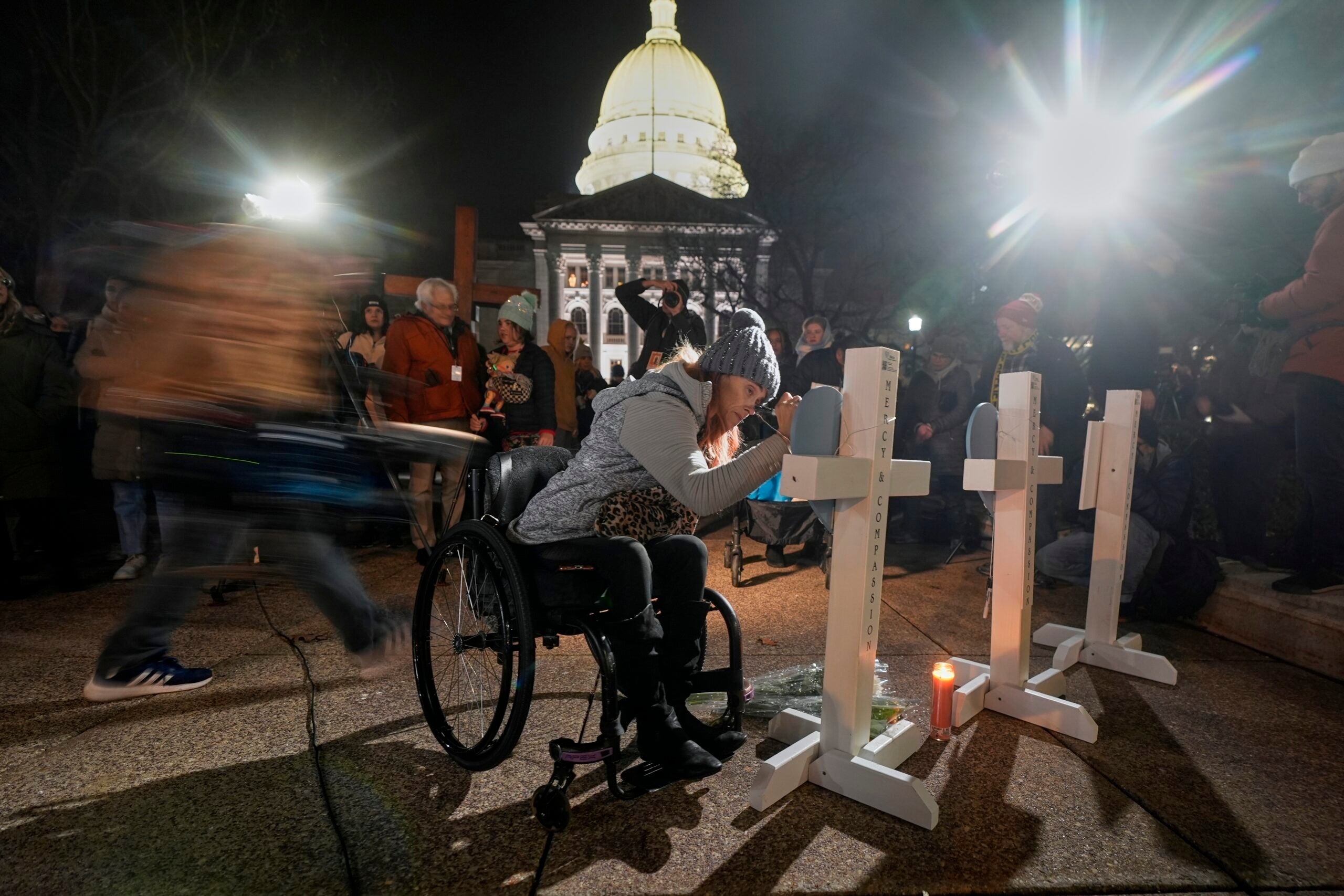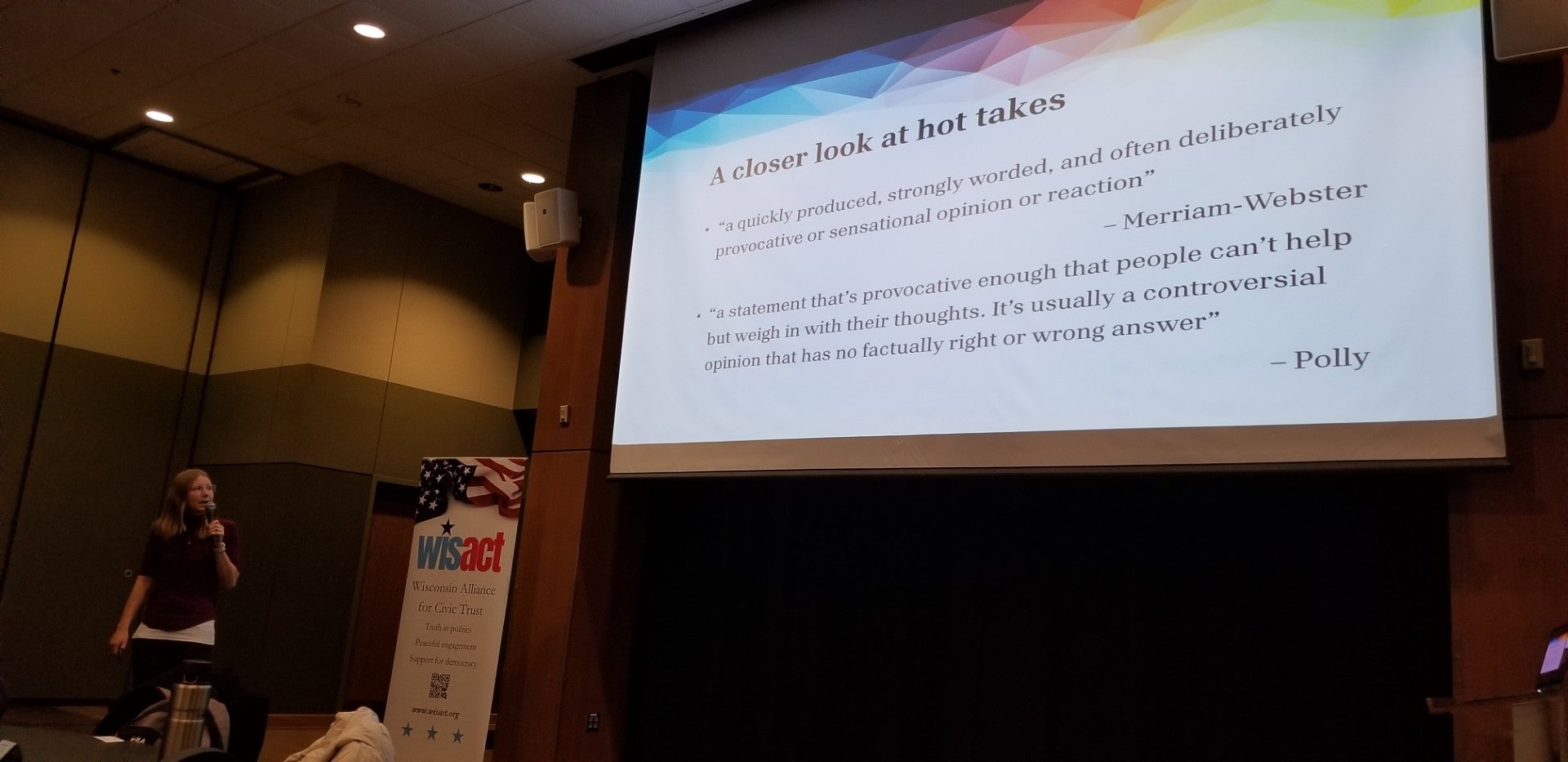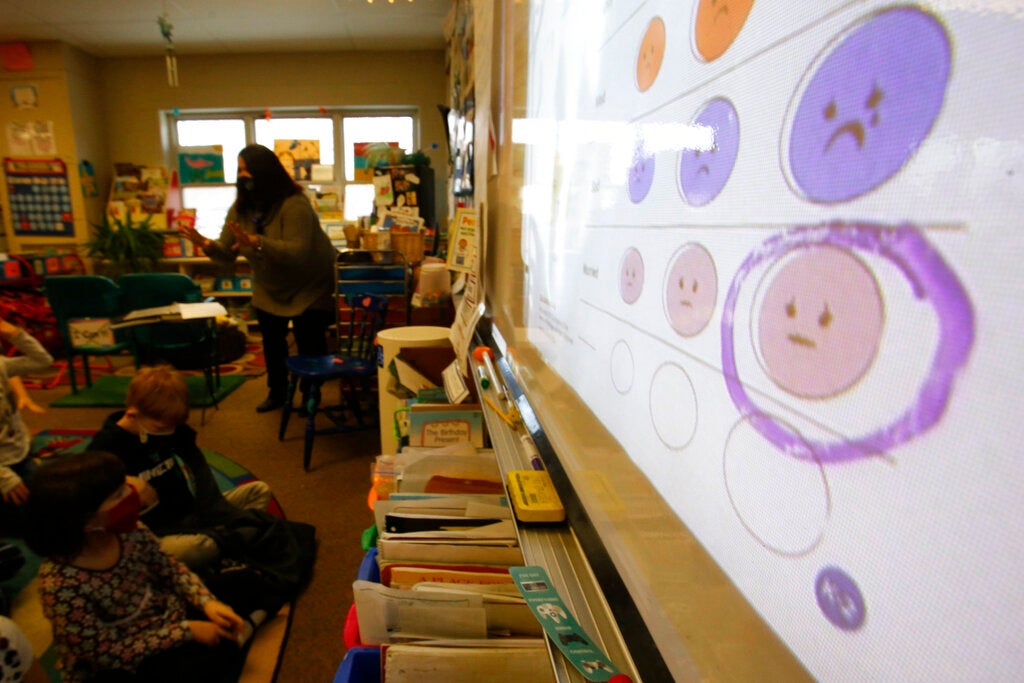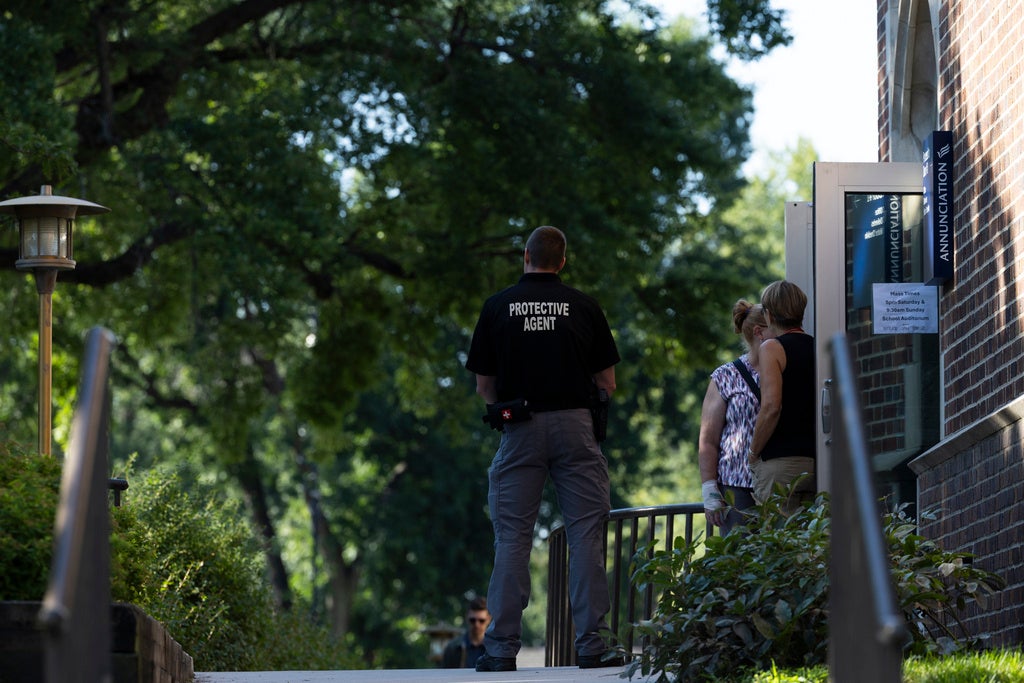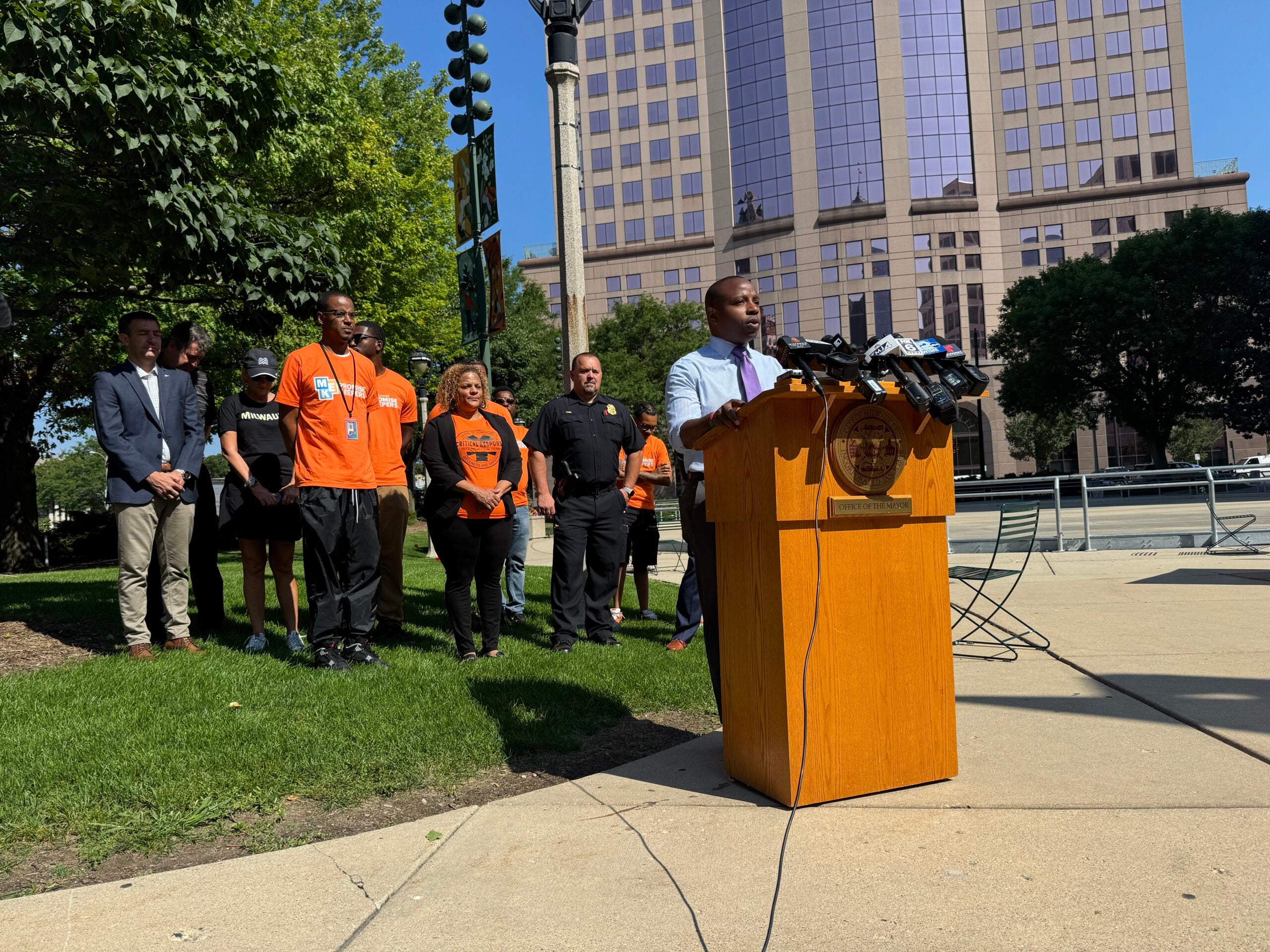Tuesday night, hundreds gathered for a candlelight vigil at the state Capitol to grieve those killed and injured in a shooting at Abundant Life Christian School in Madison.
Authorities continue to search for answers on how the 15-year-old student behind the attack was able to access the handgun she used for the attack.
Mark Barden is one of the parents that lost a child during the shooting at Sandy Hook Elementary School in Newtown, Connecticut, in 2012. He and his wife formed the anti-gun violence group Sandy Hook Promise in 2013.
News with a little more humanity
WPR’s “Wisconsin Today” newsletter keeps you connected to the state you love without feeling overwhelmed. No paywall. No agenda. No corporate filter.
He told WPR’s “Wisconsin Today” that grief will look different for different people in the aftermath of this shooting.
“Accept the help from folks who are there for you: your friends and family who don’t know what to do, who can’t take your pain away, but want to do anything they can to make your life easier,” Barden said. “Let them do that. It will be helpful to you, and it gives them a sense of purpose and meaning.”
“Understand that there’s no wrong way to move through this. Just do this at your own pace,” he added. “Rely on the love and support of others if you have that luxury in your life.”
Barden also talked with WPR about the importance of catching warning signs and how to stop school shootings before they happen.
The following interview was edited for clarity and brevity.
Kate Archer Kent: Some people and kids are living this tragedy through their online social media channels, through their phone screens. What advice do you have about navigating online spaces following a tragedy like this?
Mark Barden: I think it’s whatever works for you, if there’s comfort in that. Maybe folks engage in their hobbies or look at photos of family, or whatever you find to be helpful, if that’s the path you take. See what works.
Try to stay healthy and positive to the best of your ability. I know for us, we had to focus on making it as normal an existence for our surviving children as we possibly could. And that’s a lot of work all by itself, but it’s healthy, distracting work. We had mixed results. It was our younger children who were there accompanying us as much as we were able to be there for them.
So you just have to move through this in whatever way works best for you.
KAK: Sandy Hook Promise is running this program that aims to help authorities identify warning signs before someone commits an act of gun violence. Can you talk about the impact you’re finding through this type of program?
MB: We started this organization with the basic, simple concept of preventing other families from having to endure this lifetime of pain, and to see if there was a different approach that we could take that hadn’t already been done, where we could truly focus on the essence of prevention.
We bring these Know the Signs programs into schools at no cost and train students, parents and teachers how to recognize those warning signs or how to be a trusted adult to a student who sees warning signs, either in themselves or others. And then that trusted adult can connect that individual with whatever support or services they need.
Students trained in our Know the Signs programs have now prevented at least 16 credible, planned school shootings and countless acts of violence, over 700 suicides just by using their knowledge from their training on how to recognize those warning signs and then connecting that person to a trusted adult to get them help.
We have a model that works. It’s so hard to say that this didn’t have to happen, that it was preventable to folks who are living through this pain. I understand that dichotomy, living this myself. What happened to us in Sandy Hook was preventable. But we just need to get more folks trained, and folks in our communities aware of those warning signs and with the tools to get them connected to help.
KAK: Trish Kilpin, director of the Wisconsin Department of Justice Office of School Safety, recently told us that a confidential reporting system can be a key to prevent school shootings. What importance do you see to programs like this in stopping school shootings?
MB: There’s so much benefit. We have our anonymous reporting system that’s connected to our Say Something program. So students have access to a crisis center that’s staffed with trained counselors who are multilingual, who have already connected with their district. So when a tip comes into the crisis center, they already know who all the folks on the ground in that district are.
We build the programs into clubs in the schools, so it’s not just a training once in September and we’re done. We build it into the culture and the climate of the school. So in addition to stopping the bad things, we’re also building and fostering a culture of upstanders who are more compassionate, more connected with one another.
Wisconsin Public Radio, © Copyright 2025, Board of Regents of the University of Wisconsin System and Wisconsin Educational Communications Board.

